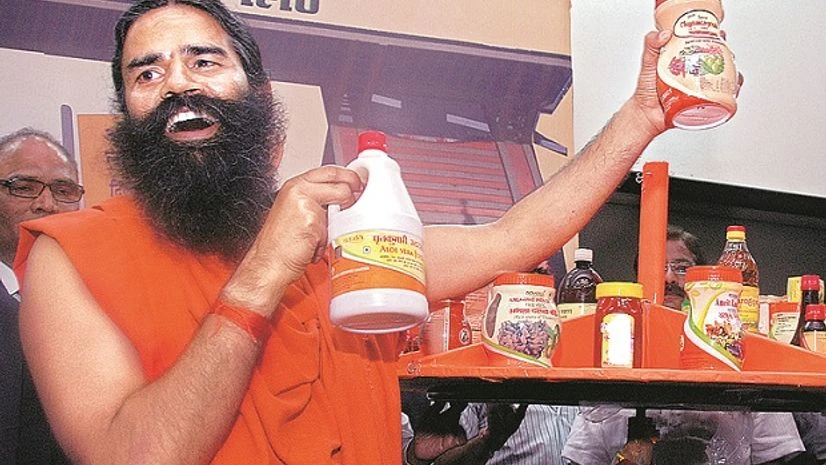As Patanjali Ayurved, Baba Ramdev’s pet project to counter growing influence of the multinational corporates in the domestic consumer goods space, continues to bombard the market with new products, rivals are gearing up to throw a tough challenge to the challenger.
Hindustan Unilever (HUL), the largest Fast moving consumer goods (FMCG) firm in the country is latest to join the battle. The FMCG major which already has a vast portfolio of personal care brands — from shampoos and anti-aging creams to toothpastes and deodorants — is set to enter Baba’s den with mass market herbal-natural portfolio. And to counter the surging tide of herbal-natural products in the country, led by Patanjali, HUL is banking on an old horse from its stable–Lever Ayush. It plans to launch a range of personal care products, priced between Rs 30 and Rs 130, under the brand.
Once launched, the range will directly compete with Patanjali’s personal care products that are priced below its competitors’. It has a wide range of such products – from face pack, face wash and winter creams to shaving gel, body lotion and lip balm. According to Ramdev, its current supply fails to feed the market demand and the firm is thus coming up with new manufacturing facilities across the country to meet growing demand.
HUL had been working on a plan for quite some time. Months after Baba Ramdev announced in April this year that Patanjali has clocked Rs 5,000 crore in sales during 2015-16, HUL decided to revive Lever Ayush–an ayurvedic brand which was left in the corner some years ago by the company. Launched in 2001, by the local subsidiary of the Anglo-Dutch FMCG giant Unilever, it failed to gain traction during the last decade. Samir Singh, executive director of HUL, earlier told The Economic Times that the very concept of ayurvedic products inside modern packaging by a multinational company was “way ahead of time”.
However, Patanjali’s increasing dominance over the FMCG market in India and consequently surging demand for herbal-natural products, has changed the dynamics in recent years. A recent report by industry body FICCI and consulting firm PwC estimates the herbal-natural product market in India to grow up to Rs 51,700 crore ($ 7.6 billion) by 2020 from Rs 43,500 crore ($ 6.4 billion) in 2016. “Natural, organic, herbal, ayurvedic and other traditional products continued to perform well. Helping their steady performance are consumers’ long-held beliefs that such products are safe and have no side-effects, compared to their alternatives. With the popularity of home remedies in India, natural, herbal and ayurvedic products are generally regarded as extensions of such therapies”, it observed.
Also Read
Global personal care giant Garnier launched its Ultra-Natural shampoos this year to capture attention of the Indian consumers this year. Others like Colgate-Palmolive, which has been facing considerable competition in the toothpaste market from Patanjali’s Dant Kanti brand has been leaning on indigenous flavours like charcoal, salt-lemon and neem. It also revived its Cibaca brand on the wake of growing market share of Dant Kanti recently. Indian ayurveda-based firm Dabur also said recently that the firm is refocusing on the space and aims to increase revenue share from ayurvedic and herbal products to increase up to 75 per cent by 2020 from 60 per cent at present.
Between 2011-12 and 2015-16, PAL has grown by more than ten times - its revenue grew by 1004 percent in four years to Rs 5,000 crore in FY2016 from Rs 453 crore in FY2012. While, peers in the market have managed to grow by up to 15 per cent annually between FY2012 and FY2016, Patanjali’s annual average growth rate is pegged at 82.27 per cent during the same time. The performance of the Indian economy during the years between 2011 and 2015 has been mediocre at less than 7.6 per cent compared to the time period between 2004 and 2010 when it grew by eight to 9.6 per cent annually.
The result was evident in the consumer markets as well. Data from market research firms such as IMRB International and Nielsen show that growth in the consumer goods, especially FMCG market remained subdued–growing at about three to ten percent, punctured by periods of de-growth in between. However, that did not affect Patanjali’s sales as it had some of the major players in the industry. And as per Ramdev’s estimates Patanjali may touch Rs 10,000 crore sales in the current financial year.

)
